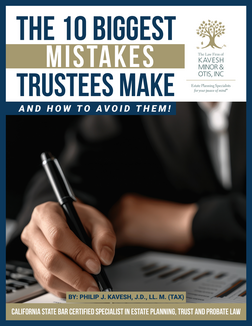Mental Capacity for Trusts
California holds more stringent requirements for persons who want to establish a trust. While Californians wishing to pen a will need not understand the legal mechanics of the document, those seeking to establish or alter a trust must be cognizant of their decision or the probable impact of their decision.
The state Probate Code dictates that trustors must understand the following:
- The rights, duties, and obligations created or otherwise affected by the conditions of their trust
- The foreseeable or likely consequences for the trustor as well as all individuals who may be affected by their decision to establish or alter a trust
- The risks, benefits, and contingencies of their decision or decisions
As with wills, anyone seeking to challenge a trustor’s mental capacity must demonstrate that the trustor’s physical or mental condition interferes with their ability to understand the basic mechanics of their trust. Even people who experience hallucinations and delusions can still legally write a will, provided their condition does not interfere with their ability to understand their relationship to their assets and beneficiaries.
If You’re Preparing a Challenge, Don’t Do it Alone
Since California holds the presumption that everybody has the mental capacity to write a will or alter a trust, anyone seeking to prove otherwise bears the burden of proof. If you have been left out of a will or your inheritance has been reduced by a loved one who is no longer capable of making informed or responsible decisions, you should contact an experienced estate planning attorney to discuss your options. Send us a message online, or call us today, and we will review the unique circumstances of your case.
|
Related links: |







